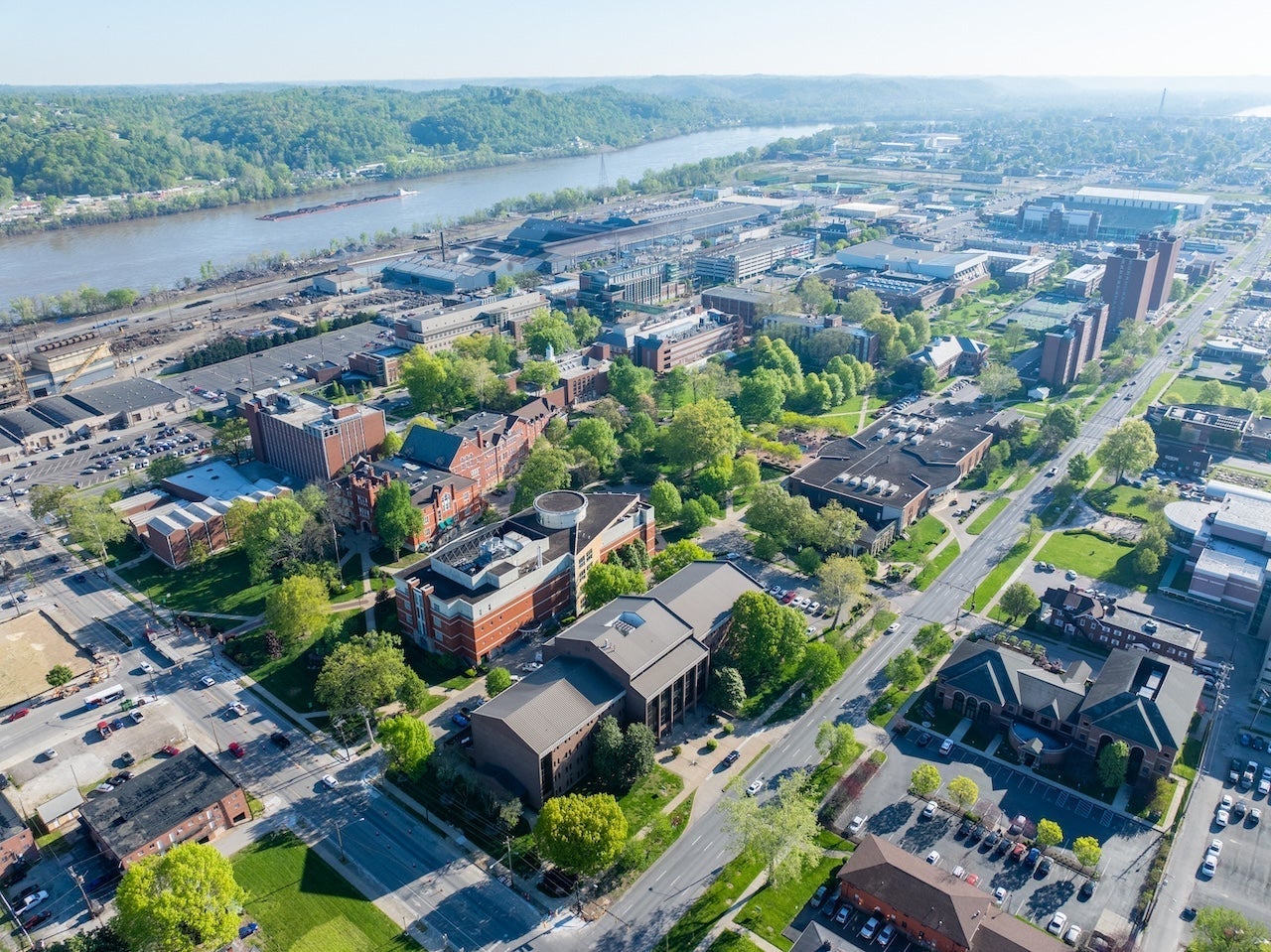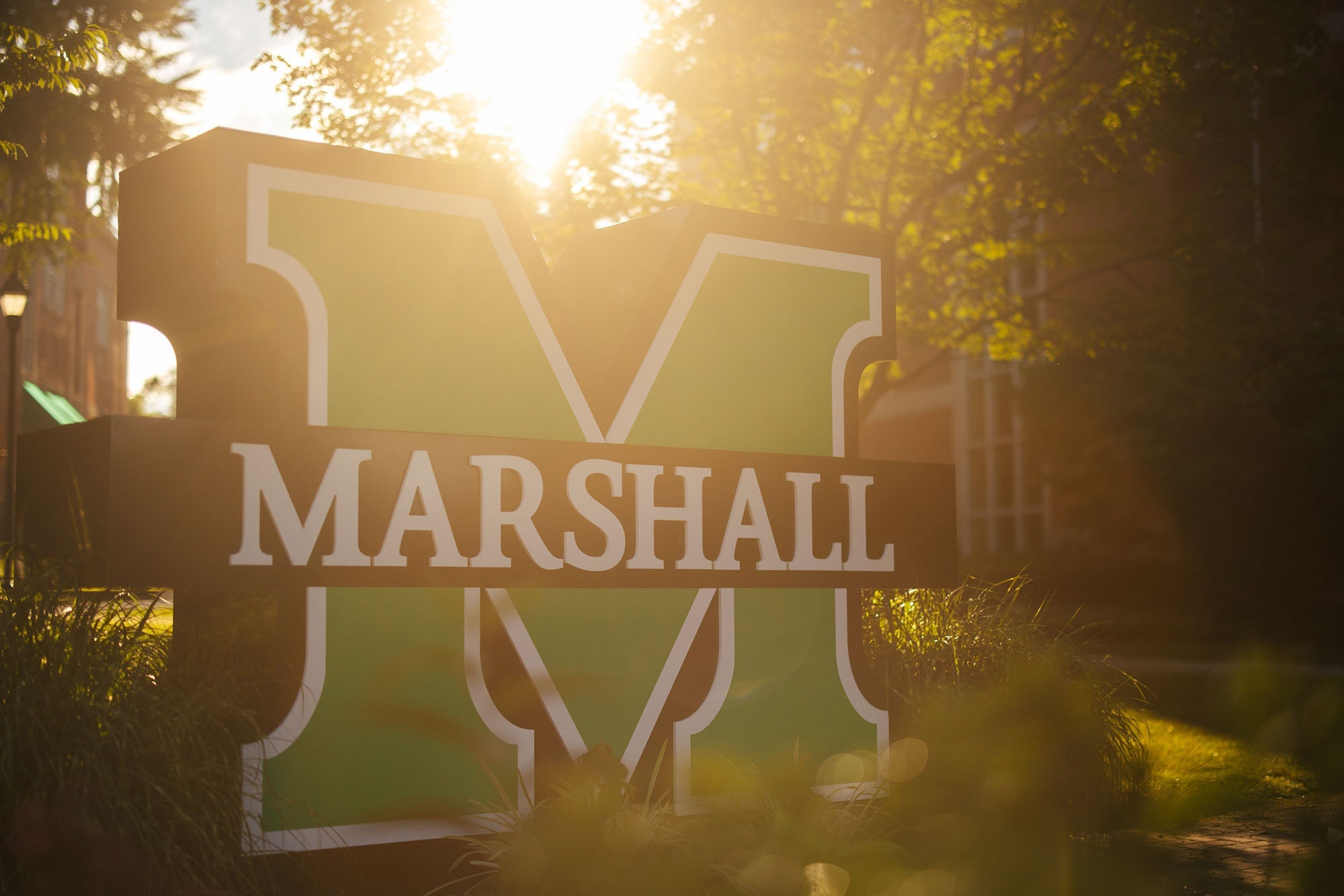
Empowering Future Data Scientists in Appalachia Welcome to the REU: Undergraduate Research in Data Analytics (URDA), a 10-week summer research experience at Marshall University. This NSF-funded program is designed to provide transformative research opportunities for undergraduate students, particularly first-generation students, underrepresented minorities, and students from resource-limited institutions in Appalachia.
Our program equips students with cutting-edge skills in data analytics, machine learning, cybersecurity, and artificial intelligence, connecting classroom knowledge to real-world applications. Through mentorship, hands-on projects, workshops, and networking, participants will gain the expertise needed to excel in graduate studies and careers in data science.
- Work on innovative research projects in predictive, descriptive, diagnostic, risk, threat, behavior, and visual analytics.
- Gain hands-on experience with real-world datasets and advanced data science tools.
- Receive personalized mentorship from leading faculty in Computer Science and Data Analytics.
- Collaborate with peers in a supportive and inclusive research community.
- Present your research at conferences and symposiums with opportunities for publication.
Program Highlights
- Duration: 10 weeks (Summer)
- Location: Marshall University, Huntington, WV
- Stipend: Competitive NSF-funded stipend
- Eligibility: Open to undergraduate students nationwide, with an emphasis on students from West Virginia, Kentucky, and Ohio.
Core Research Areas
- Big Data & Predictive Analytics: Forecasting trends, anomaly detection, and workload predictions, i.e., Truth Tracker: Can AI Spot Fake News?
- Cybersecurity & Threat Analytics: Analyzing security logs, intrusion detection, and risk analytics, ie., Analyzing Intrusion Detection Logs in IoT Networks
- Machine Learning & AI: Data modeling, deep learning, and algorithm optimization, ie., Emotional Analytics for Images, Innovative Railroad Maintenance System
- Social Media & Behavioral Analytics: Understanding user behavior through social media data, ie., Understanding Virtual Reality Players
- IoT & Smart Systems Analytics: Leveraging sensor data for security and efficiency, ie., Immersive Virtual Reality for Enhanced Learning Environments, Smart IoT-Driven Data Visualization for Decision Making

✅ Hands-on research projects guided by faculty mentors.
✅ Workshops & Seminars on cutting-edge data analytics techniques.
✅ Technical and professional development training to enhance research skills.
✅ Networking opportunities with industry professionals and graduate school representatives.
✅ Final Research Symposium where students present their work.
Activities
Engaging, Hands-On Research & Learning Experience
The REU: URDA program is designed to provide students with real-world research experience through various activities:
Technical Workshops:
✔ Data Analytics Tools (Python, R, Weka, Jupyter Notebooks)
✔ Data Cleaning & Preprocessing Techniques
✔ Machine Learning & AI for Data Science
✔ Cybersecurity & Threat Analytics
✔ Data Visualization and Dashboard Creation
Research Seminars & Professional Development
✔ Scientific Writing & LaTeX for Research Papers
✔ How to Present Research Effectively
✔ Ethics in Data Science
✔ Career Paths in Data Analytics
✔ Graduate School Preparation

We invite highly motivated undergraduate students to apply for our NSF Research Experience for Undergraduates (REU) program. This program provides a unique opportunity to engage in cutting-edge research in Project Focus Area, gain hands-on experience, and collaborate with faculty and peers.
Eligibility Requirements
Applicants must meet the following criteria:
- Must be a U.S. citizen or permanent resident.
- Must be currently enrolled as an undergraduate student in an accredited U.S. institution.
- Preference will be given to students majoring in computer science, electrical engineering, data science, or related fields.
- Must have completed at least one programming course (e.g., Python, JavaScript, C++).
- Students from underrepresented backgrounds in STEM are encouraged to apply.
Program Dates
- Application Deadline: April 20, 2025
- Program Start Date: May 20, 2025
- Program End Date: July 29, 2025
- REU Research Symposium: August 1, 2025
Application Materials
- Online Application Form – Available at https://etap.nsf.gov/award/7954/opportunity/10858
- Resume/CV – Highlighting academic background, technical skills, and relevant experience.
- Personal Statement (500–750 words) – Explain your interest in the program, research goals, and how this experience will contribute to your academic and professional career.
- Unofficial Transcript – Demonstrating academic standing and coursework completed.
- Letter of Recommendation – From a faculty member or research advisor.
Housing & Meals
- Housing: Participants will be provided with on-campus housing in one of Marshall University’s residence halls, such as those in Marshall Commons (Gibson, Wellman, Haymaker, or Willis Halls). These facilities offer modern amenities and are conveniently located near research facilities and campus resources.
- Meals: Each student will receive a meal plan covering daily expenses, allowing access to various dining facilities on campus, including Harless Dining Hall, which offers an all-you-care-to-eat menu with diverse options.
Travel Support
- Transportation: The program covers round-trip airfare or mileage reimbursement for students traveling from outside the area.
- Local Commuting: Assistance is available for local transportation needs, ensuring convenient access to research facilities and campus events.
Stipend & Compensation
Each participant will receive a $6,000 stipend for the full duration of the 10-week program.
Additionally, outstanding students may receive conference travel support to present their research at national conferences.
Research Facilities & Resources
- Students will have access to state-of-the-art labs, computing resources, and research tools.
- Each student will be paired with a faculty mentor from the Department of Computer Sciences and Electrical Engineering.
- Regular seminars and workshops will provide professional development and networking opportunities Research Facilities & Resources
Local Information
- Location: The program is hosted at Marshall University, located in Huntington, WV.
- Nearby Attractions:
– Pullman Square – Shopping, dining, and entertainment district.
– Ritter Park – Walking trails, picnic areas, and recreational facilities.
– Huntington Mall – The largest shopping center in the area.
- Essential Services:
- Grocery stores such as Kroger and Walmart are within close proximity.
- Downtown Huntington offers a variety of restaurants, coffee shops, and student-friendly spaces.
- Public Transportation:
- The Tri-State Transit Authority (TTA) provides bus services throughout Huntington, allowing for convenient travel around the city.
- Campus Amenities:
- Drinko Library – Study and research space with computer labs.
- Marshall University Recreation Center – Gym, indoor track, and pool.
- Student Lounges & Outdoor Green Spaces – Designed for study, relaxation, and collaboration.
Analyzing intrusion detection logs in IoT networks
Develop lightweight countermeasures to detect and prevent cyber threats in low-power networks.
Faculty Mentor: Dr. Wook-Sung Yoo
Emotional Analytics for Images
Have you ever wondered how computers can recognize emotions from images? In this REU project, students will explore the fascinating field of Emotional Analytics, where artificial intelligence (AI) is used to analyze facial expressions and determine emotions such as happiness, sadness, surprise, or frustration. By leveraging deep learning techniques and computer vision, participants will develop models capable of accurately interpreting human emotions from images. This research has powerful applications in mental health monitoring, human-computer interaction, and personalized user experiences.
Faculty Mentor: Dr. Haroon Malik
nnovative Railroad Maintenance System
Are you excited about transforming the future of transportation? In this innovative REU project, we aimed to create a maintenance warning system for railroads using cutting-edge computer vision and object detection technologies. This project offers a unique opportunity for undergraduate students to apply their machine learning and computer vision skills to a real-world problem that impacts safety and efficiency in the railway industry. By participating in this project, you will gain hands-on experience, collaborate with experts in the field, and contribute to pioneering solutions that could revolutionize railroad maintenance. Don’t miss the chance to be part of a team driving technological advancements—apply now and make a tangible difference!
Faculty Mentor: Dr. Husnu Narman
Immersive Virtual Reality for Enhanced Learning Environments
Have you ever imagined how virtual reality (VR) can transform the way we learn and interact with complex concepts? In this REU project, students will dive into the cutting-edge field of immersive virtual reality, exploring how VR technologies can create engaging and effective learning environments. Under the guidance of Dr. Tanvir Irfan Chowdhury, participants will design and develop VR applications that simulate real-world scenarios, enabling users to interact with and understand intricate subjects in fields such as science, engineering, and medicine. By combining principles of human-computer interaction, 3D modeling, and user experience design, students will create immersive experiences that enhance comprehension, retention, and engagement. This research has far-reaching implications for education, training, and beyond, offering new ways to make learning more accessible and impactful.
Faculty Mentor: Dr. Tanvir Irfan Chowdhury
Smart IoT-Driven Data Visualization for Decision Making
In this project, students will explore the intersection of the Internet of Things (IoT) and data analytics using Tableau, a leading visualization tool. Participants will collect real-time sensor data from IoT devices—such as temperature, motion, or environmental sensors—and develop interactive dashboards to monitor and analyze trends dynamically. By integrating IoT with Tableau, students will gain hands-on experience in collecting and processing IoT data, visualizing the data, and using data-driven insights to improve smart environments. This research has applications in smart cities, healthcare, and industrial monitoring, enabling users to make faster and more informed decisions based on live data. Whether you’re new to IoT or passionate about data visualization, this project provides a practical way to develop in-demand skills that bridge technology and decision-making.
Faculty Mentor: Dr. Yousef Fazea
Truth Tracker: Can AI Spot Fake News?
Fake news spreads fast—but can AI track how far a story drifts from the truth? This project dives into real news sources like AP and Reuters to uncover patterns in misinformation. Using AI and Machine Learning, we’ll analyze linguistic clues, detect deviations, and explore how fake news spreads. Instead of just labeling stories as true or false, we’ll measure their distance from reality. Join us to build cutting-edge tools that fight misinformation with data-driven insights!
Faculty Mentor: Dr. Char Sample
Understanding Virtual Reality Players
In this project, students will explore virtual reality (VR) game players through their in-game behaviors and post-experience reviews. The project may involve one or more of the following tasks: Developing a VR application, running a lab study, analyzing quantitative game data to determine behavior patterns, and analyzing qualitative data to understand player experiences. This project would be an excellent fit for students who are interested in games and/or virtual reality!
Faculty Mentor: Dr. Mehmet Kosa


